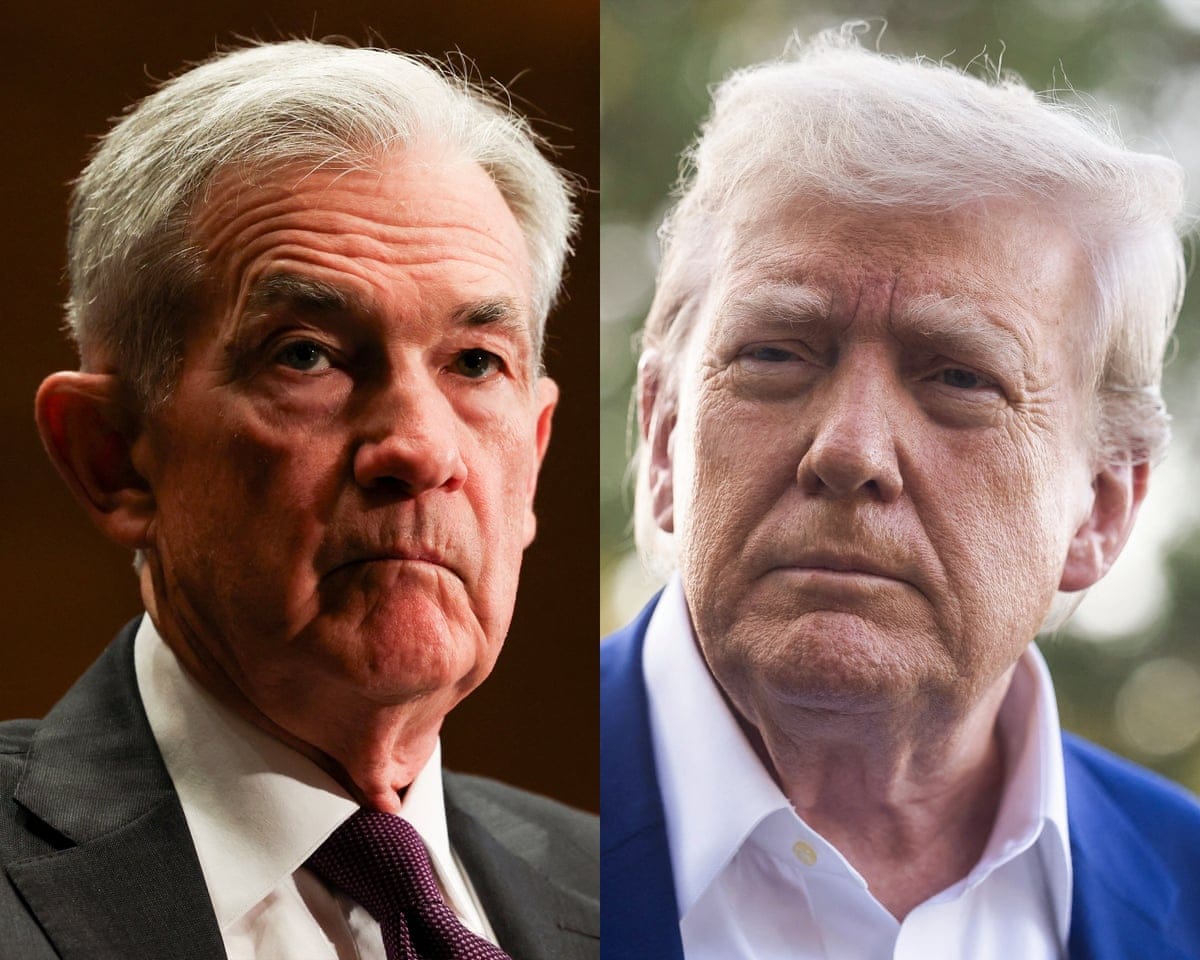For months, Donald Trump has repeatedly criticized the Federal Reserve and its chair, Jerome Powell, on social media, even threatening to remove him from his position. Recently, he adopted a new approach: a handwritten message.
“You have cost the USA a fortune and continue to do so. You should lower the rate – by a lot!” Trump wrote to Powell, whom he mockingly referred to as “Too Late.”
Trump’s focus on the Fed is unsurprising. Amid his trade disputes, businesses and consumers have voiced concerns about economic stability. Stocks fell sharply in April when he announced new tariffs, recovering only after he scaled back most of the measures.
The Fed influences the economy by adjusting interest rates. Higher rates, as seen in recent years, increase borrowing costs for mortgages, loans, and credit cards. This discourages spending and investment, slowing economic activity. A rate cut could boost markets, but long-term consequences may follow.
But how much influence does Trump truly have over the Fed?
Though his direct confrontations with Powell mark a shift from typical presidential-Fed relations, economists note the central bank’s structure limits Trump’s immediate authority.
The Fed has long operated as an independent, nonpartisan institution. Research shows that nations without autonomous central banks often suffer from high inflation and unemployment.
“Central bank independence is one of the few economic policies with clear benefits and no real downside,” said Jason Furman, a former economic adviser to Barack Obama. “When leaders exert excessive control, like in Turkey, inflation can spiral, leading to severe economic crises.”
In late June, Trump mentioned considering “three or four people” to replace Powell. When asked if he would accept the position, Scott Bessent, a rumored candidate, stated, “I will follow the president’s wishes.”
Discussions about replacing Powell nearly a year before his term ends have raised concerns that a new appointee might act as a “shadow chair,” influencing Powell’s decisions before his departure.
However, experts familiar with the Fed’s structure say such intervention is unlikely, as decision-making relies on consensus among its leadership.
The Fed chair does not set rates unilaterally. They are one of 12 members of the Federal Open Market Committee (FOMC), where collective deliberation determines policy shifts.
Read next

Ryanair plane had only six minutes of fuel upon Manchester landing, records show
Flight Narrowly Avoids Disaster After Storm Diversion
An inquiry has been launched after a Ryanair flight, struggling against severe winds during storm Amy last week, landed at Manchester Airport with only six minutes’ worth of fuel remaining.
The aircraft had been transporting passengers from Pisa, Italy, to Prestwick, Scotland, on

"Qantas customer data for 5 million exposed as hackers release info post-ransom deadline"
Hackers Leak Personal Data of 5 Million Qantas Customers on Dark Web
A cybercriminal group has released personal records of 5 million Qantas customers on the dark web after the airline did not meet their ransom demand.
The breach is part of a larger global incident affecting over 40 companies,

Investors flee record-high UK stocks as EU set to hike steel tariffs
Investors Withdraw Record Sums from Equity Funds Amid High Market Valuations
Data reveals that investors in the UK have withdrawn an unprecedented amount of money from equity funds over the past three months, driven by concerns over soaring stock market valuations.
According to the latest figures from Calastone, the largest

